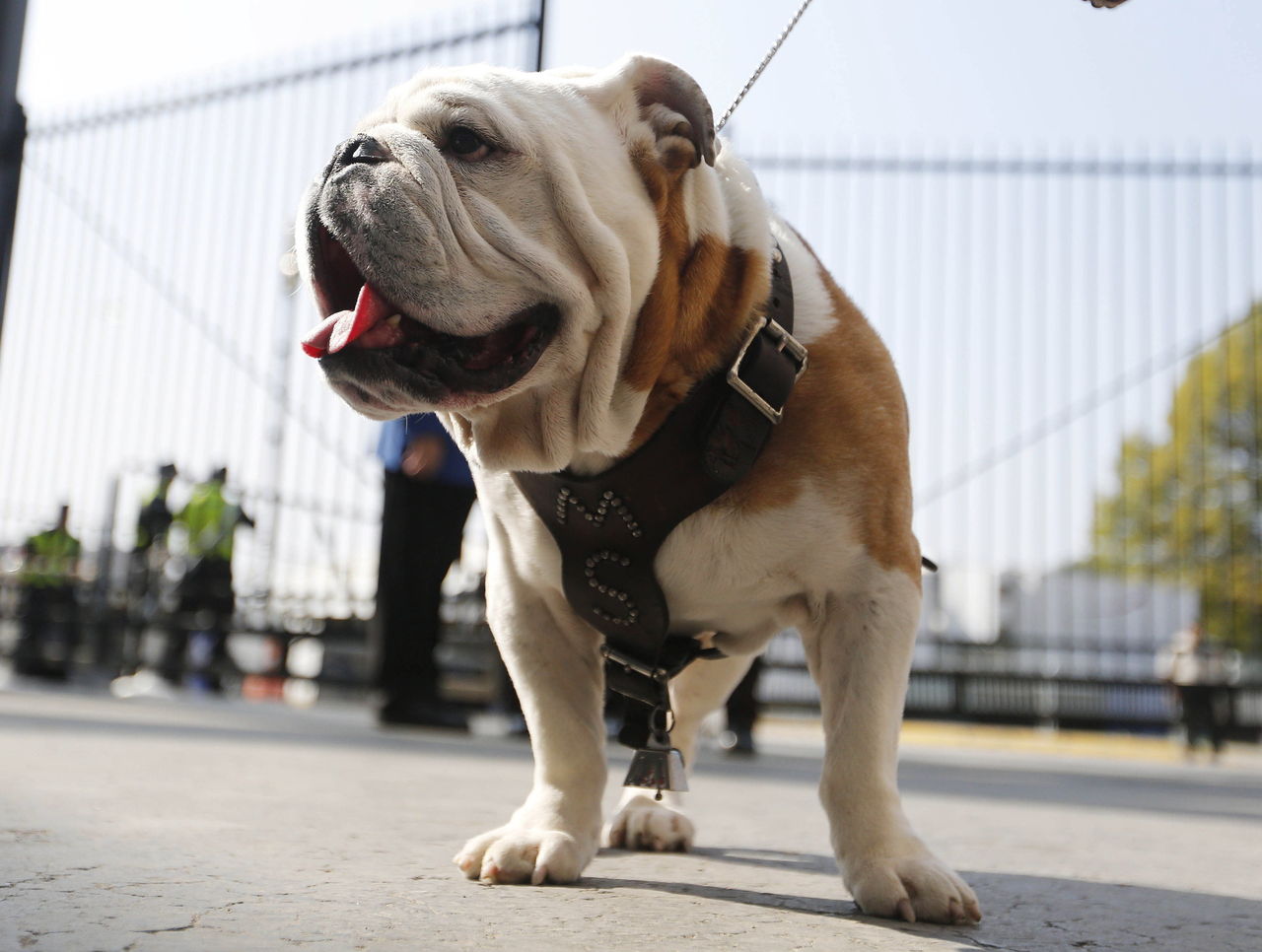5 hardest Sweet Sixteen falls by No. 1 seeds

Daxter Miles Jr. thinks Kentucky is set to fall hard in the Sweet Sixteen.
The West Virginia freshman predicted Wednesday that his Mountaineers will make the Wildcats 36-1 on Thursday, ending their undefeated season and eliminating them from the NCAA tournament.
Even at this late juncture of the tournament, that would be an enormous upset. Kentucky is the top overall seed and an even-money favorite to win the entire tournament. They're also 13-point favorites against Miles Jr. and company.
But Kentucky falling to No. 5 West Virginia wouldn't be entirely unprecedented. Here's a look at the five hardest falls by No. 1 seeds in the Sweet Sixteen.
1997: No. 4 Arizona d. No. 1 Kansas, 85-82
Raef LaFrentz. Paul Pierce. Scot Pollard. Jacque Vaughn. 34-1.
The 1996-97 Kansas Jayhawks looked more or less unbeatable, having dropped just a single game all season - an early February slugfest against a .500 Missouri team. Flush with NBA talent and having rolled a pair of low seeds in the tournament's opening rounds, Kansas looked a good bet for the national championship.
And then Mike Bibby struck, as he was wont to do. Bibby led Arizona with 21 points, Michael Dickerson dropped a 20-piece and the Wildcats shot 47.1 percent en route to an 85-82 upset, one they'd use as momentum to ride all the way to a national championship of their own.
1996: No. 5 Mississippi State d. No. 1 Connecticut, 60-55
The 1995-96 Huskies had rolled for most of the season, led by future NBA superstar Ray Allen and his 23.4 points per game. At 32-2 entering a Sweet Sixteen matchup against 25-7 Mississippi State, UConn looked to be in great shape.
But Allen struggled to a 9-of-25 mark from the floor, the Huskies shot 32.4 percent as a team and Connecticut had no answer for Darryl Wilson, who dropped 27 points on 9-of-14 shooting.
The Bulldogs would hang on for a 60-55 victory, ultimately making it to the Final Four. In the process, they helped clear the way for Tony Delk, Antoine Walker and Kentucky, who closed out their 34-2 season with a national championship.

2011: No. 5 Arizona d. No. 1 Duke, 93-77
There's getting upset as a favorite, and then there's what happened to Duke to close out what had been a 32-4 campaign in 2010-11.
The Blue Devils just didn't show up defensively against Arizona, losing by the second-largest margin ever for a one-seed in the Sweet Sixteen, to the tune of an embarrassing 93-77 defeat.
Kyle Singler scored 18 for Duke and Kyrie Irving dropped 28 off the bench, but the team - with eight eventual NBA players - just couldn't defend, allowing Arizona to shoot 54 percent and live at the free throw line. Derrick Williams dropped 32 points with 13 rebounds to lead the way, feasting on the Plumlee brothers and flashing the 3-point range that made him the No. 2 pick in the NBA Draft that June.
Arizona would bow out to Kemba Walker and eventual champion Connecticut in the Elite Eight.
1984: No. 4 Indiana d. No. 1 North Carolina, 72-68
In retrospect, a 28-2 team with Michael Jordan at the helm should have been an even bigger favorite than the 1983-84 North Carolina Tar Heels were at the time.
But Jordan wasn't quite Jordan yet, and he stumbled to a 6-of-14 shooting mark in the Sweet Sixteen, opening the door for an Indiana upset. Sam Perkins dropped 26 for UNC, too, but it was the defense that abandoned them, with Indiana shooting 64.9 percent in the 72-68 victory.
Led by current UCLA coach Steve Alford's 27 points, the Hoosiers were able to hang on late but would lose to an even bigger underdog, No. 7 Virginia, in the next round.
2012: No. 4 Louisville d. No. 1 Michigan State, 57-44
The 2011-12 Michigan State Spartans actually weren't a great one-seed, entering the Sweet Sixteen at 29-7 despite an other-worldly season from Draymond Green.
Their losing to Louisville wasn't necessarily shocking, but the manner in which they lost was: they scored just 44 points, the lowest total ever for a No. 1 seed in the Sweet Sixteen. No other team has ever failed to score 50, win or loss.
The Spartans shot 28.6 percent from the floor, 9-of-28 from outside and only made 12 trips to the line, failing to make up for it with offensive rebounds (the rebounding battle was more or less even) or ball control (they committed 15 turnovers). Louisville only shot 38.2 percent themselves in one of the lowest-scoring tournament games in recent memory.
Louisville would ultimately lose in the Final Four to eventual champion Kentucky.
HEADLINES
- No. 7 Florida drops 111 points on No. 20 Arkansas in blowout win
- No. 1 Duke crushes No. 11 Virginia to clinch share of ACC title
- No. 2 Arizona uses 16-0 run in 2nd half to put away No. 14 Kansas
- Saint Mary's beats No. 9 Gonzaga to share WCC regular-season title
- Calipari matches worst loss of career, wishes it 'would have gone faster'